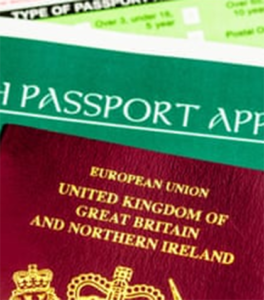Brexit sparks UK ‘brain drain’ – study
Brexit has sparked a ‘brain drain’ in the UK with an exodus of economically productive people from the UK to European Union, according to a new study.
The exodus is on a scale that would normally be expected only as a result of a major economic or political crisis, according to the study by Oxford University and the Berlin Social Science Centre.
 Using statistics from across the EU and interviews with people living in Germany, the study found huge changes in migration patterns of UK citizens since the 2016 referendum.
Using statistics from across the EU and interviews with people living in Germany, the study found huge changes in migration patterns of UK citizens since the 2016 referendum.
The movements contrast to the largely stable migration movement among nationals from the 27 EU states remaining in the bloc, the researchers found.
They also found a “seismic shift” in the number of UK citizens already living abroad who had decided to go a step further by obtaining EU member state passports since 2016.
The researchers say the shows Britain’s vote to leave the EU has prompted many people to make decisions.
The study says that migration from the UK to the EU by about 30 per cent compared to pre-Brexit numbers.
Britons living in other EU countries who decided to obtain EU member state passports as well as their UK ones had increased by more than 500 per cent overall, and by 2000 per cent5 in Germany.
“These increases in numbers are of a magnitude that you would expect when a country is hit by a major economic or political crisis,” said lead researcher Dr Daniel Auer.
The study found that UK migrants were among the most educated and skilled of those from any nation, with one of the highest net average income rates.
The researchers said this suggested that Brexit had begun a steady drain of the most talented and productive people to the EU.
In Germany, UK migrants were among the highest earners, bringing in on average €2,812 a month in 2019, just behind those from Austria and the US, the study found.
There are now about 1.2 million British citizens living in the EU, between 120,000 and 150,000 of which are in Germany.
In the four years since the Brexit referendum, more than 30,000 UK citizens have been granted dual British/German citizenship; and 2019 saw 14,600 naturalisations compared to 622 in 2015.
About half of all British citizens living in Germany will have dual UK/German nationality by the end of 2020, the report says.
Interviews with UK citizens living and working in Germany showed Brexit had made people prepared to take on levels of risk that they previously would not have considered.
An unexpected finding of the study was that many UK citizens in Germany have made a greater commitment to integrate into their local communities as a direct result of Brexit.
It found many people a commitment to German language learning and local community work along with a pride in a new British European identity.
“We’re observing a new social migration phenomena and a redefining of what it means to be British-European,” Dr Auer said.
The study found said, in the last four years, “collective uncertainty”, sparked by Brexit, was and remains a powerful driver of altered migratory behaviour at a scale comparable to the impact of a significant economic shock.












